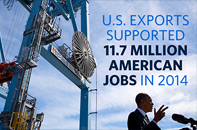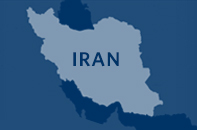The American Family of Governments, Working Together to Strengthen America’s Economy
August 23, 2011
11:43 AM EDT
From Jefferson Keel, the current President of the National Congress of American Indians and the Lt. Governor of the Chickasaw Nation, on his experience participating in the White House Rural Economic Forum in Iowa:
Like so many of our rural neighbors, American Indian and Alaska Native communities have felt the burden of our nation’s economic challenges. In fact tribal nations have known hardship like this for too long. That is why the efforts of the White House to find economic development solutions for Indian Countryhave been so important to tribal leaders and entrepreneurs. It’s also the reason I accepted the invitation to join other rural leaders in Iowa to have an important conversation with President Obama and Secretaries Vilsack, Salazar, Donovan, and LaHood about the economic viability of our country, including our tribal nations. The discussions with the President and Secretaries were constructive and encouraging.
The White House Rural Council, established this past June, is a flagship effort that shows President Obama is serious about building a strong economic future for all Americans. The fact that tribes have a seat at the table as rural policy is considered is a reflection of a commitment to the nation-to-nation relationship that began even before the President took office. It is a commitment that acknowledges the need to address the challenges tribes face and sees the innovation tribal nations offer to build a stronger America.
Native people are America’s most rural population and tribal lands consist of over five percent of the nation’s land base (an area that would make Indian Country the nation’s fourth largest state). While many of our communities are among the poorest in the country and unemployment rates in Indian Country often stand above 50 percent, tribes are leading the way in developing and implementing innovative policy.
During my conversations in Iowa with the President and cabinet members, I emphasized that many of the key drivers of the 21st century American economy are areas where rural communities – and tribes specifically – offer strong opportunities for investment and innovation. The vision of a globally competitive America with a diverse middle class requires substantial investments in renewable energy, broadband, education systems, and economic development in rural areas. Modernizing rural infrastructure, sustainably managing natural resources, ensuring the quality of food systems, and many other rural focused policy strategies, are critical to the economic strength of our nation.
Tribes offer dependable, domestic energy and stand ready to contribute to America’s clean energy economy. Indian lands comprise 10 percent of the nation’s natural resources and significant energy potential – enough to meet 32 percent of the nation’s energy needs with wind power and 2 times our energy needs with solar power. Investments in access to the power grid for tribal and other rural communities can secure our sustainable energy future.
Tribes are also home to innovative rural economic development. Innovative tribal business owners have been on the forefront of the “onshoring” movement to utilize the lower cost of labor and land in rural communities to keep direct mail and similar businesses based in the United States. Reservation-based businesses have garnered interest from major companies looking for alternatives to outsourcing. The success of these enterprises depends on the availability of broadband infrastructure. Broadband is the back-bone of the new emerging economy. And it is available to almost every American (95 percent) but in tribal communities, it only reaches 10 percent of possible users. Broadband is the pipeline to progress, and we need investment, but first we need an end to barriers that stand in the way of that investment.
Yes, there is much to do to revitalize our economies, our communities, and rural America, but we must do it together. Tribal nations, as outlined by the Constitution and upheld by the Supreme Court, are vital members of the American family of governments. Last week in Iowa, as I sat across from President Obama, Secretary Vilsack, and Americans from diverse rural communities, I felt confident that not only will tribal leaders play an important role in building better policies, tribal nations will play a vital role in solving the great challenges our nation faces. We will do this together, as a family of governments and a family of American citizens.
Founded in 1944, the National Congress of American Indians is the oldest, largest and most representative American Indian and Alaska Native organization serving the broad interests of tribal governments and communities. Learn more at NCAI.org.





